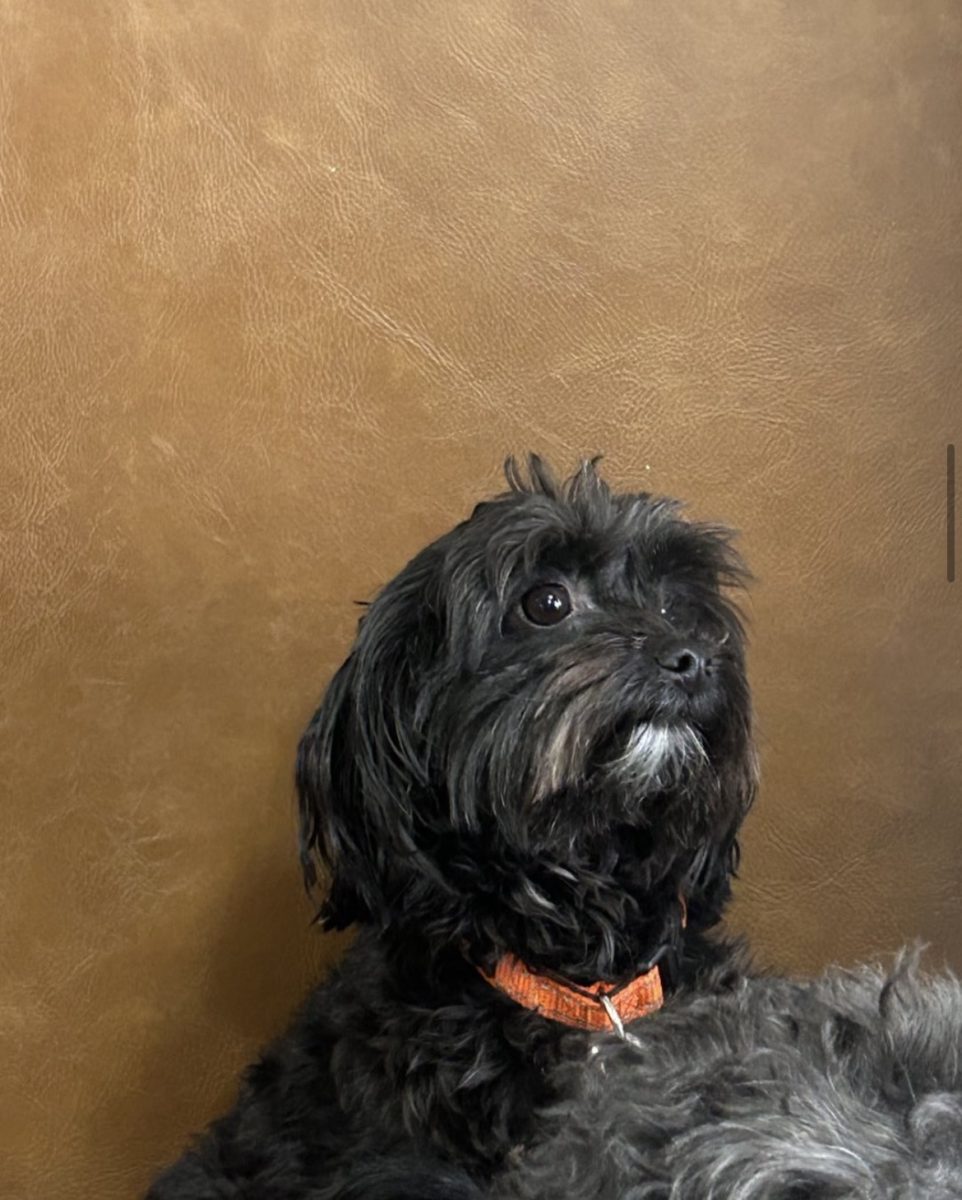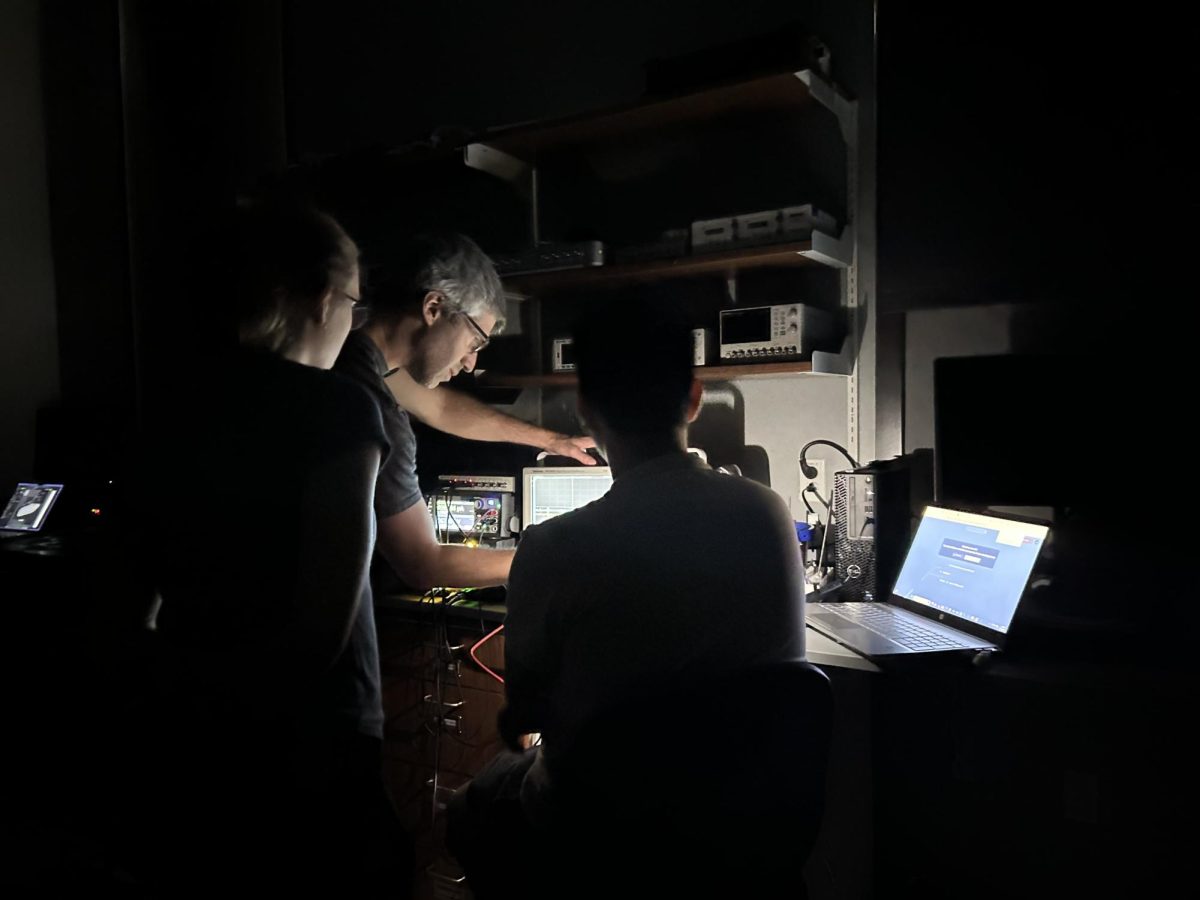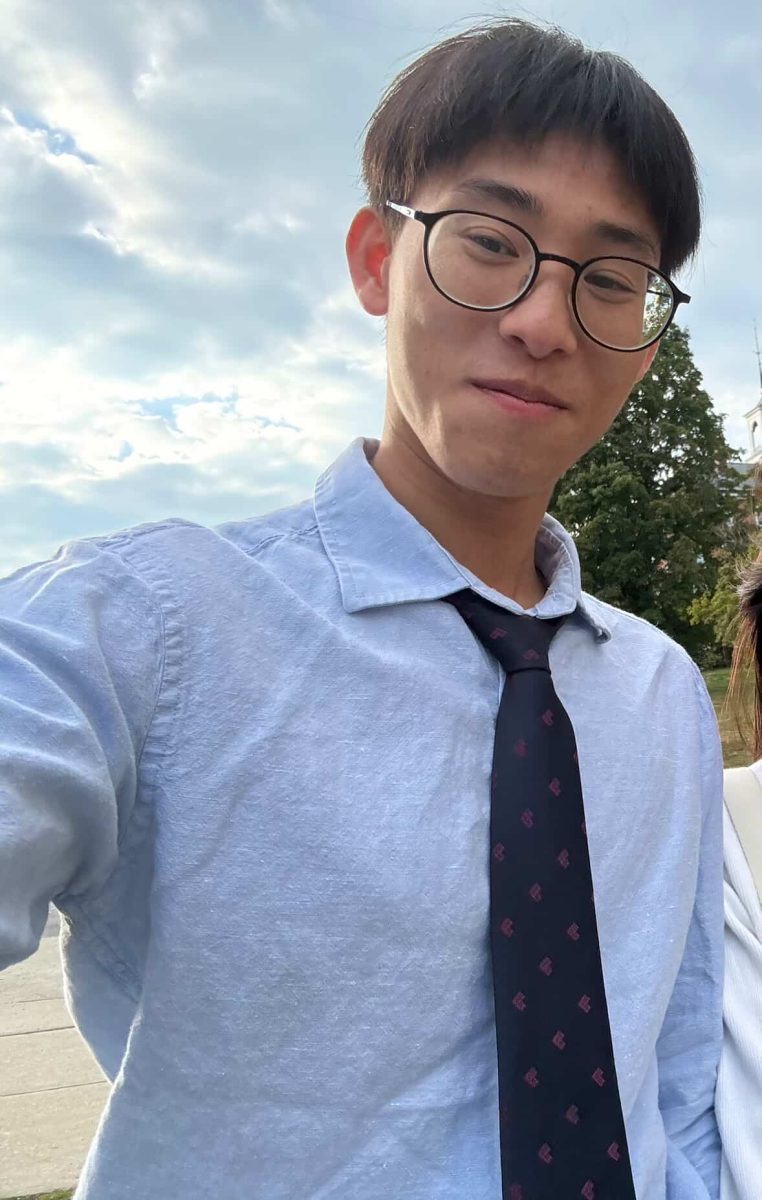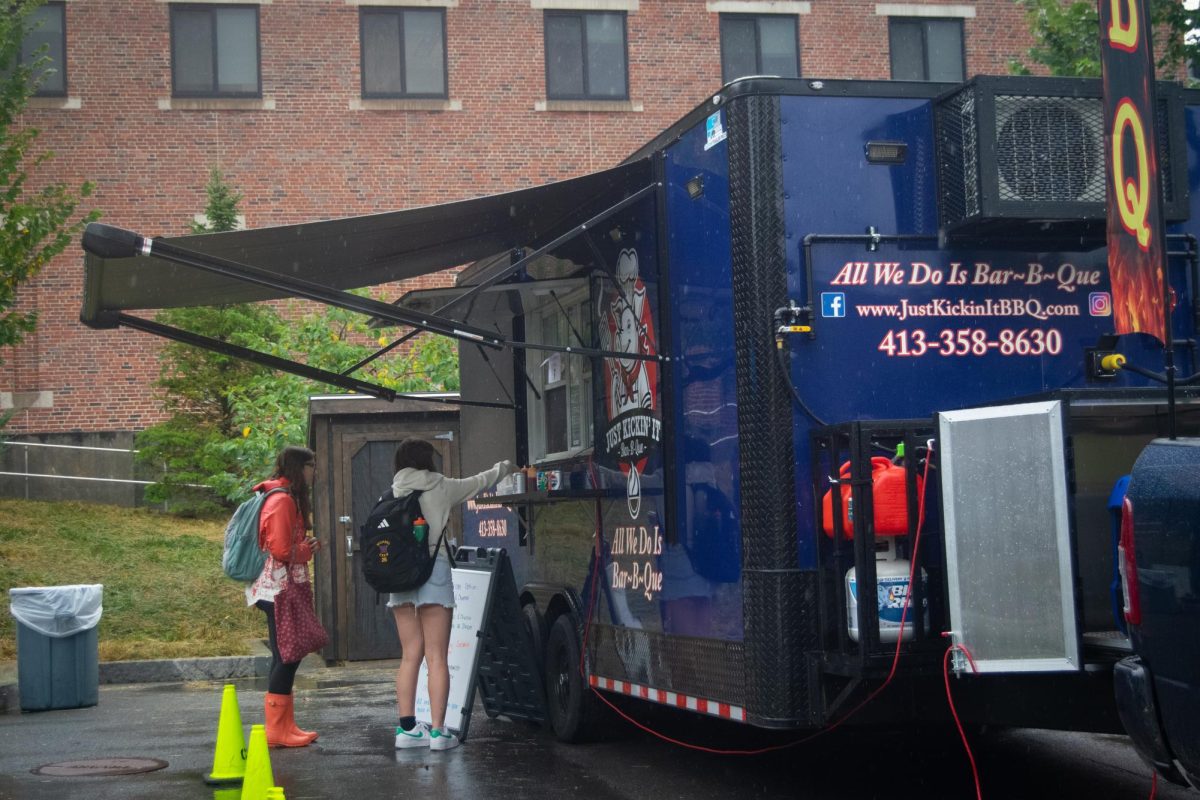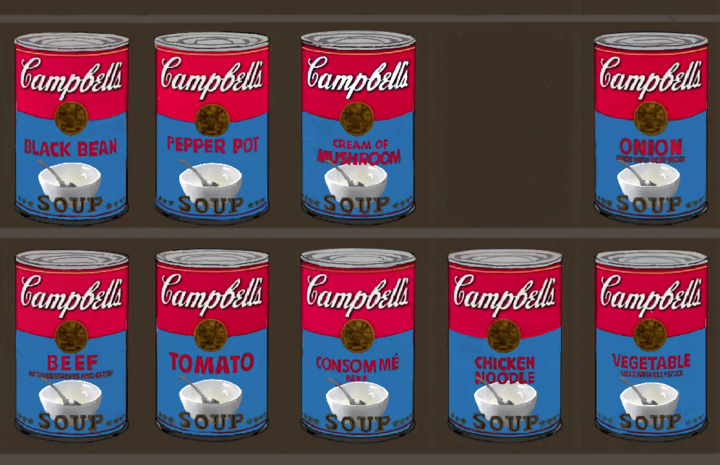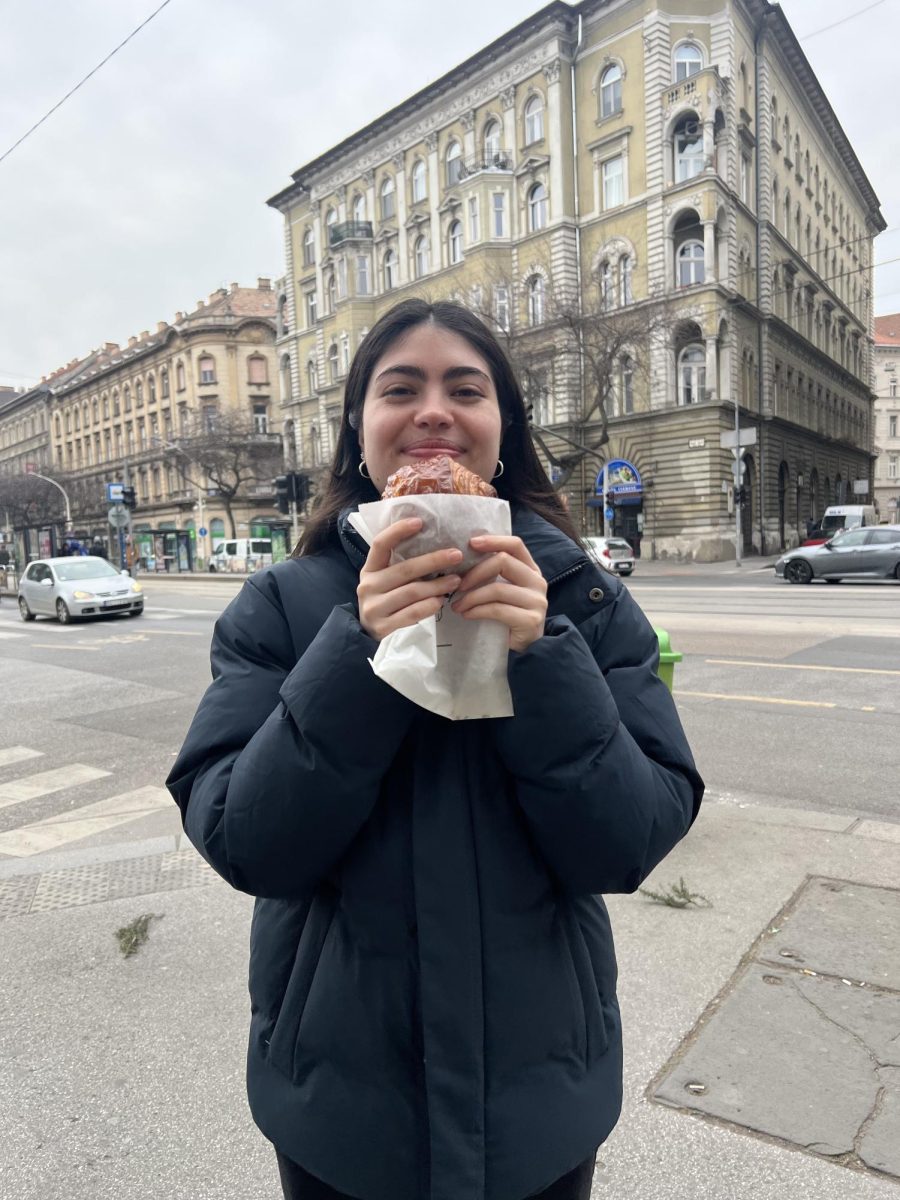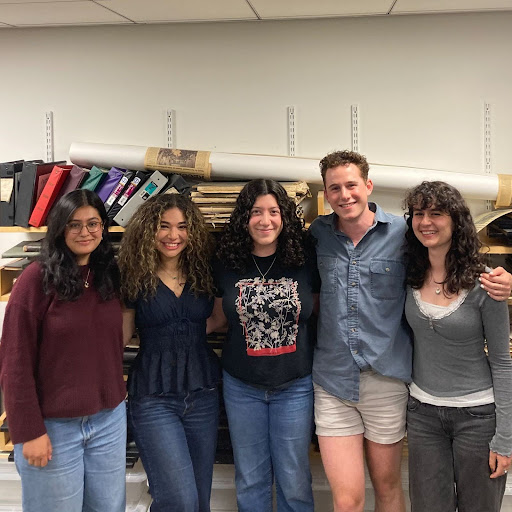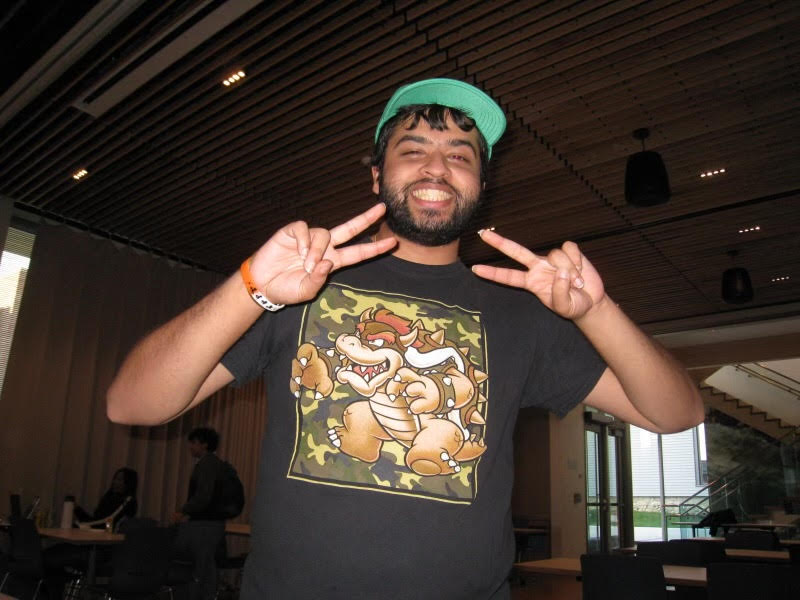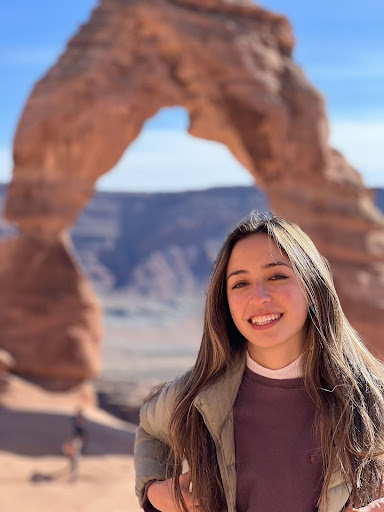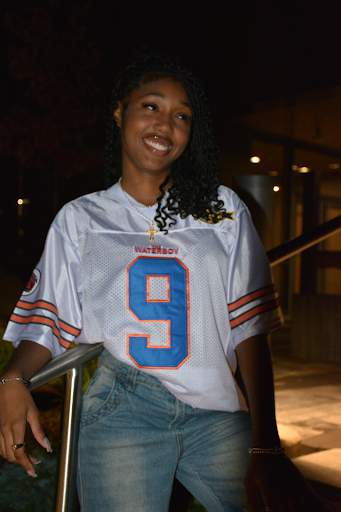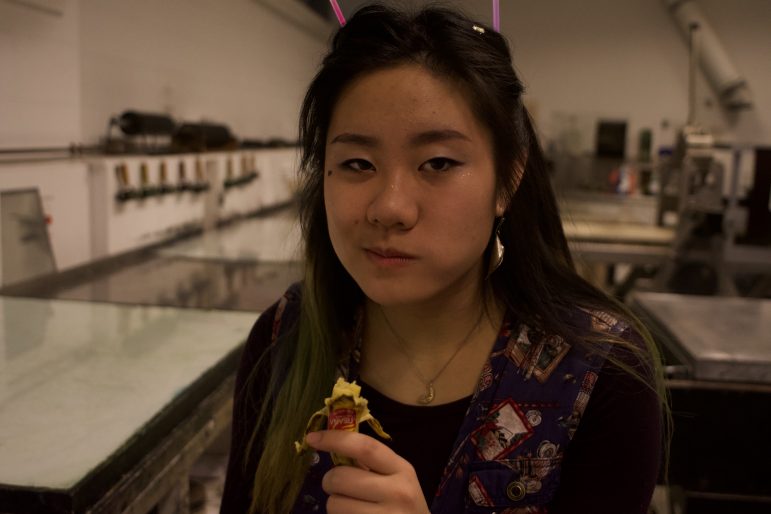
We both met Crystal as first-years, Kaira through Willy E (she and Crystal are now roommates), Rebecca through crew. Crystal always brightens our days with her animated anecdotes and quirky style. We recently sat down with her to discuss everything from herbalism to anarchist puppeteers to flooding toilets.
RT: What’s in the notebook that you brought to this interview?
CM: Some thoughts, let me see… So here’s one, and it has to do with my Winter Study. My Winter Study was with this herbalism organization, and they make an effort to erase the boundaries between food and medicine. You take plants and, for example, can make tinctures out of them, which you can then add like a dressing to a salad! I thought that was an interesting way to reframe how to think about eating and healing.
KM: How did you decide on this Winter Study plan?
CM: At the end of last semester, I was in the print studio making a final for my American studies class (take a class with [Assistant Professor] Eli Nelson!), and it was the first time I had ever made a print, and it was just a really, really amazing experience. While I was carving, I just kept thinking about how if I didn’t have other finals, I would be so happy. I wanted to experience that feeling. So I asked if I could print-make something for this organization, and they were like, “Sure.” That’s the project that I’m working on right now. And it’s a zine. It’s a spring issue, so it’s about four different herbs that grow in the spring.
Right now I’m working on a spread for dandelions. Dandelions are seen as weeds, and people try to kill them off, but the more you kill them the more they regrow. Weeds are our allies. Also dandelions are bitter, but it’s really interesting because right now our diets are so high in carbs and sugars that we don’t think of bitterness as a good flavor. But in the past, people distinguished between good and bad bitterness. [Laughs.] This is like the 10th time I’ve talked about dandelions these past few days.
KM: So, what did you do last summer?
CM: I worked at an agricultural lab that was working to develop perennial rice. Oh yeah, in China. I think that agriculture and changing the way that we understand agriculture are really important. Because right now, our approach to food cultivation is very instrumentalist. We view land as a resource or tool. But food is the most intimate of natural experiences that we can have.
RT: What did you do your senior year of high school?
CM: I worked at a weaving cooperative in Guatemala. And then in the summer I went to New York to attend a UN conference. Basically, the way our high school works, our senior year, most people get an internship. I’d heard of people being abroad for that year, so I worked it out.
RT: Are you still working for the cooperative?
CM: Right now, I run their Etsy store. It’s really cool. The cooperative itself is so, so amazing. It’s an indigenous cooperative, so everyone who lives in this town, San Juan La Laguna, is Mayan. The women in the cooperative haven’t gone through any formal education, but they’re brilliant mathematicians and businesswomen, in addition to artists.
KM: What’s the coolest thing you learned while you were in Guatemala?
CM: Well, I got better at Spanish, which was one thing. But another thing that I learned was capoeira, which is a really popular activity within the expat community around Lake Atitlan. Capoeira is this Afro-Brazilian martial art. And it’s really beautiful because it’s called playing, not fighting. It’s a type of martial art that does take a lot of physical training, but it’s also more interesting because you are always thinking about interacting energies and bodies, and somehow it works out and no one hits each other. It looks like a dance.
RT: How have your experiences traveling been?
CM: I’ve missed a ton of planes, partially because of my personality, but partially because of this theory I had, that I no longer have, that if I was on a plane and there were movies, I had to watch movies the entire time, and I could not sleep. I was a class officer my senior year of high school, and I helped plan prom. Prom was on Saturday and I booked my ticket so I would come back from Guatemala the Friday before and go to prom the next day, and it’d be so fun. But I missed the connecting flight because I had a red-eye and watched movies the whole time. I ended up getting back Saturday morning. And then I went to prom, and it was fun.
RT: Tell us more about your experience on planes.
CM: When I was flying back home last year, I was super bored, so I kept watching this guy a few rows in front of me. He was wearing weird clothes and was reading this small red book. There was a baby that was crying next to him, and he got out of his seat in the middle of the plane and took these puppets out from his carry-on. They were really raggedy and kind of creepy looking, but then he started playing with them and singing, and the baby stopped crying. Eventually, he pulls out his laptop, and it was a little creepy of me to do this, but as he was typing in his password I look and I see his name, so I quickly jot it down on my phone.
Eventually, I go back home, and I look him up on the internet, and I find out he’s this anarchist puppeteer who’s based in New York, but also his mom has mutual friends with me, and our mutual friend is my high school English teacher. I go online and read all these crazy things that he’s written and this art that he’s made about the rhizome, and it’s so interesting, and I love rhizomes both in biology and social theory. I emailed him, but he hasn’t responded yet.
KM: I know you have a brother who’s 10 years older than you. Can you tell me about your relationship?
CM: He’s super quiet but very thoughtful. Like, literally, me and him never said a word to each other until I was 15, maybe. He’s also the nicest and smartest person in the whole world. My mom told me that when I was young, like 3, and he was in middle school, he had this really big art project that he made. It was a scroll and it took him months to work on it … but I didn’t know better and tore it up on accident. He was so young but didn’t get mad at all. That sums up our relationship.
KM: Wow. You were such a mischievous child. Any other stories?
CM: Oh – I have a good one from third grade. Me and a friend named McKenna would go into the bathrooms during recess every single day. And we would lock the doors and roll up a ton of toilet paper, stick it in the toilet and flush 20 times as aggressively as possible, until the bathroom flooded. And then we would climb out over the stalls so that the doors were still locked. And we went to a bathroom in a different hallway every single day. I think this happened for literally at least three weeks, until someone closed the bathrooms for repair. Actually [Laughs.], I was the mayor and she was the vice-mayor of our third-grade class town. So we were the mayors, but we were also damaging public property.




